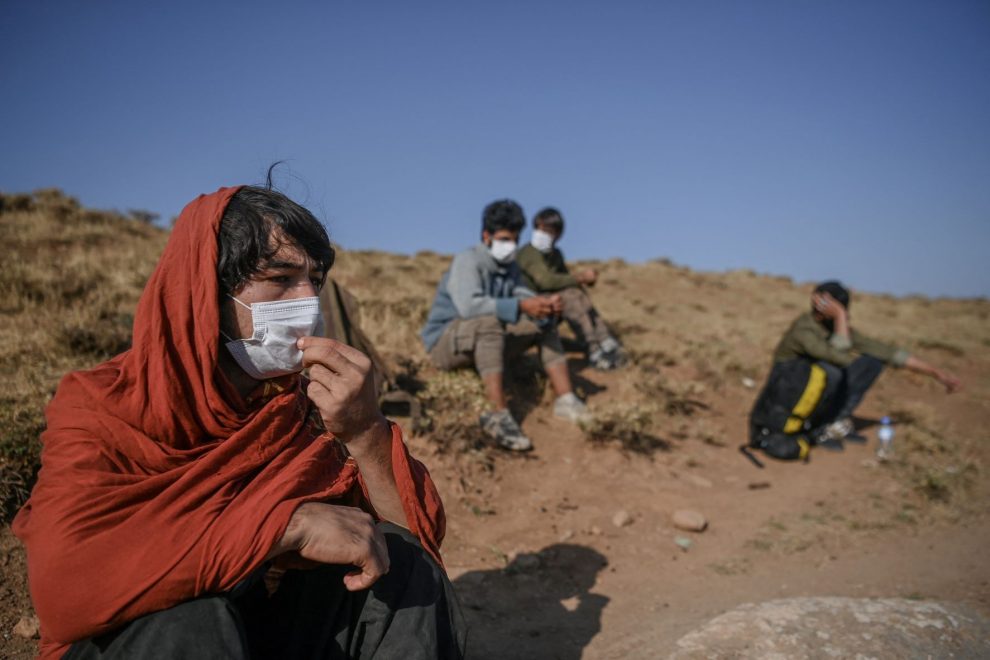Turkey’s recent expulsion of Afghan migrants reflects a growing regional trend, as neighboring countries respond to the mass displacement of Afghans fleeing Taliban rule and seeking refuge.
Turkey’s recent deportation of 325 Afghan migrants highlights the increasing challenges Afghan refugees face across the region, as neighboring countries, including Iran and Pakistan, intensify their own expulsions. Many Afghans continue to flee Taliban-controlled Afghanistan, driven by severe human rights abuses, economic instability, and restrictions on education and freedoms. International observers stress that the global refugee crisis requires urgent cooperation to provide humane treatment and address the root causes of displacement, as deportations create humanitarian concerns for both the migrants and the countries forced to manage these flows.
Turkey has recently expelled 325 Afghan migrants over a two-day period, a move that aligns with an increasing trend of forced returns across the region. The Afghan Ministry of Refugees, under Taliban leadership, confirmed that the expulsions took place on November 8 and 9, with flights transporting migrants back to Kabul. Among those expelled were individuals who held questionable “legal documents,” which Turkish authorities reportedly disregarded during the deportations.
The recent surge in Afghan migration is a consequence of profound domestic challenges. Afghanistan’s Geneva representative, Nasir Ahmad Andisha, addressed this crisis at a U.N. High Commissioner for Refugees (UNHCR) session, highlighting that over 8 million Afghans have left their homeland since the Taliban regained control. According to Andisha, Afghans are fleeing due to escalating human rights abuses, suppression of civil liberties—particularly affecting women—education restrictions, and worsening economic conditions under Taliban governance.
1. Regional Pressure on Afghan Migrants Intensifies
Turkey is not alone in ramping up deportations of Afghan migrants; Iran and Pakistan have also intensified their efforts, citing concerns over unauthorized migration. However, reports from Afghan refugees reveal troubling allegations of mistreatment and human rights violations by local authorities in host countries. Iran’s Khorasan Razavi province’s Office for Foreign Nationals, headed by Hosein Sharafati-Rad, reports that over 3,000 Afghan migrants are deported daily via the Dogharoun border, marking a 40% increase in expulsions compared to the previous year.
2. Afghanistan’s Dire Humanitarian Situation Fuels Migration
Since the Taliban’s return, Afghanistan has seen a rapid deterioration in living standards, exacerbating migration pressures. The U.N. High Commissioner for Refugees (UNHCR) cites persecution, conflict, and economic distress as key drivers of forced migration worldwide, with Afghanistan, Syria, and other conflict-ridden nations leading in displaced populations. The exodus is largely attributed to the Taliban’s stringent policies, including restrictions on education for girls and women, increased poverty, and targeted retaliation against civilians.
3. A Global Crisis of Forced Displacement
Forced migration is on the rise globally. The UNHCR’s recent report indicates a 5% increase in migration numbers worldwide, with an estimated 5.3 million more individuals displaced than the previous year. In addition to Afghanistan, countries like Syria, Myanmar, and Venezuela continue to drive the surge in global migration due to prolonged political and economic instability. In response, neighboring countries are reinforcing border controls and expelling large numbers of undocumented migrants, creating a critical humanitarian crisis.
4. Growing Calls for International Support
Human rights organizations are voicing concerns about the treatment of Afghan migrants facing deportation. The rising numbers underscore the urgency of addressing the systemic issues driving migration. Advocates urge international cooperation to ensure humane treatment of refugees and support for host nations burdened by high refugee numbers. The ongoing deportations highlight a complex issue that requires long-term solutions to address both the immediate needs of Afghan migrants and the broader systemic factors contributing to their displacement.
Conclusion: A Global Call to Address Afghan Migration
The ongoing expulsions of Afghan migrants by Turkey, Iran, and Pakistan reflect a broader crisis of forced migration. As human rights abuses, economic hardship, and Taliban policies continue to drive mass displacement from Afghanistan, neighboring countries face increasing challenges managing these inflows. International support and collaboration are essential to ensure humane treatment for refugees and to address the root causes of this growing exodus, fostering stability and security within Afghanistan and the region at large.






